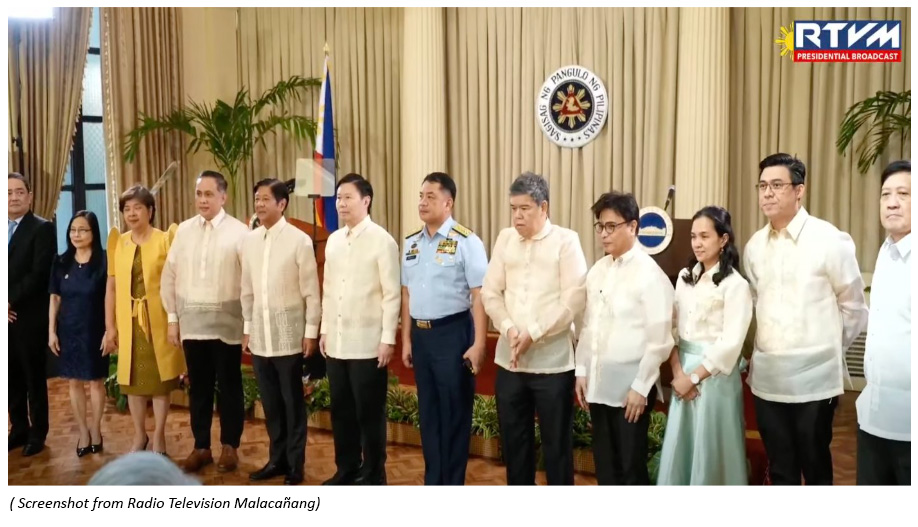
Manila, Philippines – Bolstering its commitment and dedication toward safeguarding the rights and welfare of both domestic and overseas seafarers, National Conciliation and Mediation Board (NCMB) Chief Maria Teresita Lacsamana-Cancio participated and stood as witness in the signing of the implementing rules and regulations (IRR) of Republic Act (RA) No. 12021 or the Magna Carta of Filipino Seafarers on January 8, 2025 at Malacañang Palace.
The Magna Carta, signed into law in 2024, was developed to strengthen the protection of Filipino seafarers and address the critical issues faced by the seafarers such as improved working conditions, right to organize, fair treatment in maritime accidents, and freedom from discrimination. It establishes a comprehensive legal framework for enhancing the lives of approximately 600,000 Filipino seafarers deployed in the local and global maritime industry, as well as ensures that the Philippine maritime industry as a leading supplier of maritime labor is at par with the international standards.
As the implementer of the Voluntary Arbitration Program, the NCMB is given the task to ensure the effective and specialized handling of maritime labor disputes. A provision in R.A. No. 12021 calling for a collaborative effort among government agencies, including the Department of Migrant Workers (DMW), the National Labor Relations Commission (NLRC), and the NCMB, ensures that maritime labor conflicts are handled efficiently and effectively. As outlined in Chapter XI, section 56, the law states:
“xxx For this purpose, the DMW, the National Labor Relations Commission (NLRC), and the National Conciliation and Mediation Board (NCMB) may form a specialized maritime unit in their respective labor dispute settlement structures, as well as issue the appropriate maritime industry dispute settlement rules of procedure to implement the provisions of this Act.”
The provision emphasizes the creation of specialized maritime units within the agencies to address the unique challenges of the maritime sector, ensuring more efficient resolution of disputes involving seafarers. The law also establishes clear mechanisms, rules, and procedures to ensure the fair, speedy, and equitable disposition and execution of decisions granting seafarers’ salaries, wages, statutory benefits, and death and disability claims.
In his keynote message, President Ferdinand R. Marcos Jr. highlighted the significance of the Magna Carta and its IRR. “Para sa mga kababayan sa maritime industry, ang IRR na ito ay iilan lamang sa mga paraan para kayo ay maprotektahan at mapahalagahan. Sinisiguro ng Magna Carta of Seafarers at IRR na ito ang inyong mga karapatan laban sa diskriminasyon at pananakot. Ang hakbang na ito ay hindi lamang nagbubukas ng pagkakataon sa industriya. Ito rin ay sumasalamin sa ating dedikasyon sa mas progresibo at mas pantay na patakaran sa industriya ng maritime,” the President added.
The signing of the IRR is a pivotal moment in the government’s ongoing efforts to improve the conditions of Filipino seafarers, whose dedication and sacrifices have played a major role in the global shipping industry and the country’s economy.
With the IRR signed, it is expected that cooperation between and among government agencies, maritime stakeholders, and labor groups will be improved, ensuring a robust and sustainable future for the country’s seafaring workforce.
end/nvg




 Views Today : 371
Views Today : 371 Total views : 626275
Total views : 626275

